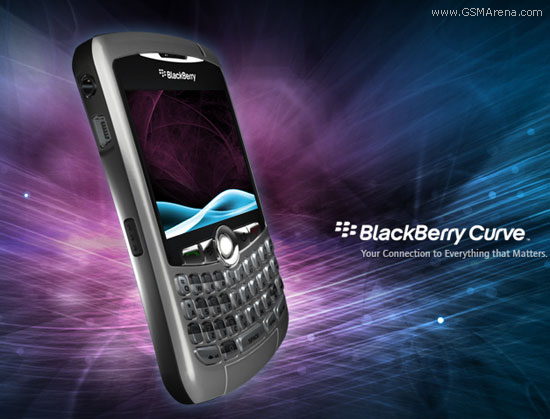BlackBerry Curve 8300 Specs Prices Pros & Cons Unveiled

Introduction to the BlackBerry Curve 8300
The BlackBerry Curve 8300 is a quintessential device from a bygone era when BlackBerry dominated the smartphone market. Released in May 2007, the BlackBerry Curve 8300 boasted various features that were considered cutting-edge at the time. This article delves into its specifications and features, examining why it was a popular choice among business professionals and tech enthusiasts during its peak.
Design and Build Quality
The BlackBerry Curve 8300 is designed with a focus on function and durability. It has dimensions of 107 x 60 x 15.5 mm and a weight of 111g, making it compact and easy to hold. The device features the classic BlackBerry QWERTY keyboard, which was highly praised for its tactile feedback and exemplary ergonomics, catering primarily to users who needed quick and reliable email and messaging capabilities.
Display Features
The device features a 2.5-inch screen with a resolution of 320 x 240 pixels. While this may seem modest by today’s standards, the display was crisp enough for text-based applications, which was the main focus of BlackBerry devices. The screen supports 65K colors, allowing for clear viewing of images and graphics to the extent that the hardware allowed.
Camera Capabilities
The BlackBerry Curve 8300 comes equipped with a 2 MP primary camera. It includes an LED flash feature, which was a useful addition for low-light photography. Although it did not offer front-facing or selfie cameras, the rear camera was capable of capturing basic images and video, adequate for users at that time who were not heavily focused on multimedia functionalities.
Hardware and Performance
The device is powered by a 32-bit Intel XScale PXA272 312 MHz processor. While it may seem limited by today’s performance standards, it was efficient for running BlackBerry OS and managing everyday tasks like email, messaging, and calendar functions. The device also features 64MB of internal storage, expandable via a microSDHC slot, allowing users to store additional data, such as emails and applications.
Network and Connectivity
The BlackBerry Curve 8300 supports GSM technology and operates on 2G bands (GSM 850/900/1800/1900). While it lacks 3G and Wi-Fi capabilities, it supports GPRS and EDGE for internet connectivity, which sufficed for checking emails and browsing the web in simpler, HTML-format pages. Bluetooth 2.0 with A2DP support allowed for wireless audio streaming, a feature appreciated by users who wanted to enjoy music on the go.
Battery Life
Featuring a removable Li-Ion 1100 mAh battery, the BlackBerry Curve 8300 offers up to 408 hours of standby time and up to 4 hours of talk time. Such battery life was sufficient for typical day-long usage without frequent recharging, one of the many reasons why it appealed to business users who required reliable all-day devices.
User Interface and OS
The BlackBerry Curve 8300 runs on BlackBerry OS, known for its secure messaging and email services. The OS was efficient and user-friendly, with a straightforward layout that allowed users to access important applications quickly. The inclusion of BlackBerry Messenger (BBM) was one of the standout features, offering a secure messaging platform that was revolutionary at the time.
Sound and Multimedia Options
The device includes a loudspeaker, vibration alerts, and MP3 and WAV ringtones. A 3.5mm audio jack was present, allowing users to connect their favorite headphones. Although multimedia wasn’t the main focus, the device supported basic music playback, which satisfied the needs of users who wanted basic entertainment features.
Legacy and Impact
The BlackBerry Curve 8300 played a critical role in cementing BlackBerry’s reputation for creating resilient, business-focused smartphones. It was widely adopted by enterprises due to its push-email capabilities and secure communications, highlights of BlackBerry’s service offering. The QWERTY keyboard remained a selling point for those who relied heavily on the tactile feedback for typing.
Conclusion
While the BlackBerry Curve 8300 might appear outdated compared to today’s technology, it was a remarkably advanced device for its time. Its focus on email, messaging, and professional use cases made it indispensable for many users. Today, it remains a nostalgic reminder of an era when BlackBerry was a frontrunner in the mobile phone industry, revered for its approach to secure and efficient communication.
BlackBerry Curve 8300 Key Features
- Quad-band GSM support providing global roaming capabilities.
- Compact and lightweight design with a weight of 111 g (3.92 oz).
- QWERTY keyboard for easy typing and messaging.
- 2.5-inch display with 65K colors and 320 x 240 pixels resolution.
- Powered by BlackBerry OS with a 312 MHz Intel XScale processor.
- Expandable memory via a microSDHC card slot.
- 2 MP main camera with an LED flash and video recording capability.
- Bluetooth 2.0 with A2DP for wireless audio connection.
- 3.5mm audio jack for standard headphone connectivity.
- Internet browsing capability with HTML browser.
- Removable Li-Ion 1100 mAh battery with up to 408 hours of standby time and up to 4 hours of talk time.
Disadvantages of BlackBerry Curve 8300
- Lacks support for 3G and 4G networks, only supports GSM technology.
- Discontinued model, may face issues with software updates and support.
- Low resolution display with only 65K colors and a 320x240 pixel resolution.
- Limited internal memory of only 64MB, requiring dependence on microSDHC for additional storage.
- No front camera for selfies or video calls.
- No Wi-Fi connectivity, limiting internet access to mobile data only.
- No GPS positioning for location-based services.
- Does not have a built-in radio.
- Powered by an outdated 312 MHz Intel XScale PXA272 processor, which may affect performance with contemporary applications.


View Also
More Phones
All Rights Reserved +14266 Phones © Mobilawy 2025

























